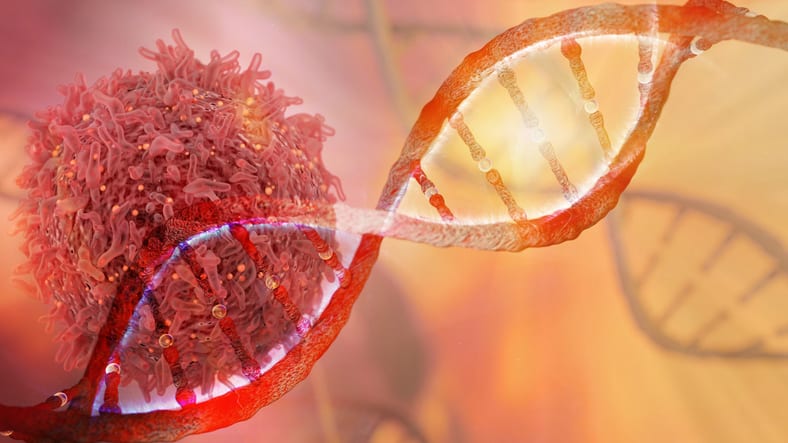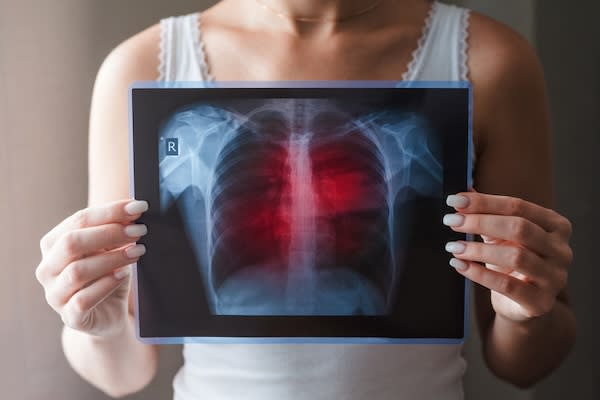CAR T-Cell Therapy
Harnessing Your Immune System to Fight Cancer
At the Providence Swedish Cancer Institute, we’re one of only two providers in Washington offering CAR T-cell therapy. This groundbreaking immunotherapy uses your own immune cells to fight cancer, offering new hope for patients who haven’t had success with other blood cancer therapies. It’s just one more way we’re delivering the most advanced, personalized care in the state.

Treatment Overview
Chimeric antigen receptor (CAR) T-cell therapy is one of the newer forms of immunotherapy. Since its approval in 2017, it’s produced widespread remission for patients with leukemia and lymphoma, offering another option when other treatments have been unsuccessful. This personalized therapy reprograms a patient’s T-cells to recognize and destroy cancer cells, launching a targeted immune response.
The Providence Swedish Cancer Institute is one of only four providers in the Pacific Northwest offering this advanced therapy, and one of the first centers in the country to offer it as an outpatient treatment. Our team specializes in treating blood cancers that haven’t responded to standard treatments, providing patients with highly personalized care and close monitoring. Beyond treatment, we offer comprehensive post-therapy support to help patients navigate recovery. As we expand our cellular therapy program, we remain committed to advancing cancer care and bringing the latest innovations to our patients.
CAR T-Cell Therapy
What to Expect
At the Providence Swedish Cancer Institute, we’ll guide you through the planning stages of CAR T-cell therapy through to recovery and future treatment if needed. Your care team is here to support your physical healing, emotional well-being, and personal goals, so you can move forward with confidence.
First, you’ll have an assessment to ensure that CAR T-cell therapy is a suitable treatment option for you. If it is, treatment begins with an outpatient procedure called leukapheresis, which draws your blood, separates out the T-cells, and returns your other blood cells back to your body. After this procedure – which takes a few hours – you may receive chemotherapy to lower immune cells. This helps your modified T-cells multiply and work more effectively when infused weeks later.
After leukapheresis and chemotherapy, you’ll receive CAR T-cell therapy, a one-time IV infusion of your modified T-cells that lasts about 30-60 minutes. You can rest in a chair or bed, wear warm clothing, and bring music or a device to relax. After treatment, you’ll be closely monitored for side effects. Some patients stay briefly in the hospital; others remain nearby for check-ups. Long-term follow-up helps ensure the therapy is working and supports your recovery and immune health over time.
Since its approval in 2017, CAR T-cell therapy has led to remission for many patients with certain blood cancers — offering new options when other treatments haven’t worked. By using your own reprogrammed immune cells to target cancer, this therapy provides a powerful, personalized option for hard-to-treat conditions.
As with any advanced therapy, CAR T-cell treatment comes with potential risks, including:
- Cytokine release syndrome (CRS)
- Neurologic side effects (such as confusion or seizures)
- Low blood cell counts
- Infection
- Fever or chills
- Fatigue
Your care team will talk with you about these risks, answer your questions, and help you make an informed decision that aligns with your goals.
Your care team is here to support you after your CAR T-cell therapy. You may have some appointments for the first few weeks to help us monitor and manage any complications. Regular checkups are still important so we can continue to manage any of your ongoing treatment needs and watch for signs of recurrence. Services are also available to help you through every treatment stage.
Learn more about our supportive care services.
Frequently Asked Questions
CAR T-cellular therapy treats certain blood cancers like leukemia, lymphoma, and multiple myeloma. To be eligible, you typically must have relapsed or not responded to other types of treatment and meet specific health criteria. Your oncologist will evaluate factors like prior treatments, overall health, and disease progression to determine if CAR T is right for you.
While CAR T-cell therapy was once only given in the hospital, most patients now receive it in a clinic. You’ll typically stay nearby — at home or in a local hotel — for frequent outpatient check-ins. We’ll see you regularly for about a month to monitor your recovery and ensure you're healing safely.
CAR T-cell therapy itself does not cause hair loss. However, most patients receive chemotherapy before the infusion to prepare the body for treatment, and some chemotherapy drugs can lead to temporary hair loss or thinning, depending on the type and dose of chemotherapy used. Your care team can provide guidance on what to expect and offer support resources to help you manage any changes during treatment.
Recovery after CAR T-cell therapy varies for each person, but most patients need at least a month of follow-up care. You’ll be closely monitored for side effects during the first week, and you can expect to feel tired and need extra rest. Your care team will continue to check up on you after this first week with scheduled appointments to track your progress, manage any side effects, and ensure your immune system is responding well. It’s important to avoid driving or intense activities until you’re cleared by your doctor, and you may want to arrange for extra help or caregiving at home.
CAR T-cell therapy itself is not known to directly affect fertility, but the chemotherapy given before treatment can impact reproductive health. In some cases, chemotherapy may reduce fertility in both men and women, either temporarily or permanently. If fertility preservation is a concern, talk to your care team before starting treatment. Our team can connect you with fertility specialists to discuss the best approach for your needs.
CAR T-cell therapy is a highly specialized treatment and can be costly. However, many insurance plans cover the therapy for approved conditions. Out-of-pocket costs vary based on your coverage, deductibles, and co-pays.
We’re also here to help — our mission is to improve the health and well-being of each person we serve. A crucial part of fulfilling this mission is our financial assistance program. This program offers free or discounted services for those who cannot afford care, are underinsured, or have no insurance at all. We provide financial assistance in cases where annual family income is between zero and 400 percent of the federal poverty level, helping ensure that financial constraints aren’t a barrier to receiving medically necessary care.
We provide a full range of supportive care services to support you during and after your cancer treatment. Some of these services include:
- Art therapists
- Cancer rehabilitation (onco-physiatry)
- Care coordinators
- Genetic counseling (cancer geneticist)
- Health educators
- Medical massage (edema, lymphedema management)
- Music therapist
- Naturopaths
- Nutritionists
- Oncology nurses
- Social workers
- Speech and language pathology
We can also help with finances, food, transportation, and other challenges for eligible patients through our patient assistance fund.
See the full list of supportive care services.
Note: Some services are provided by local partners and vary based on location. Please contact your clinic for more information.
News & Info From Our Experts



